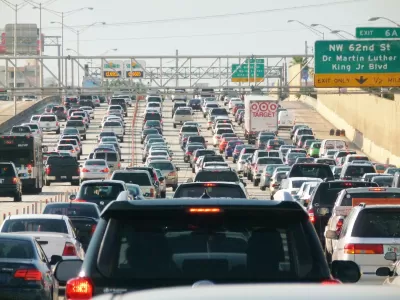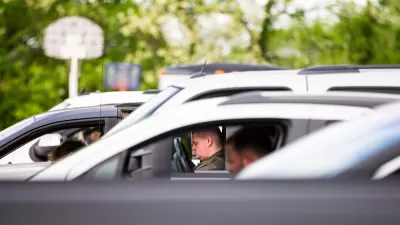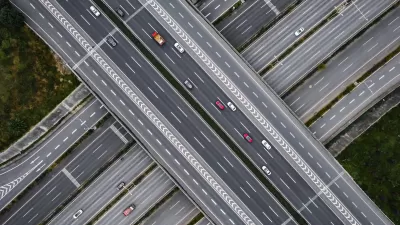New research stresses the importance of socioeconomic differences in U.S. transportation trends.

Research published by the Transportation Research Part D: Transport and Environment reveals mobility trends in the United States that indicate a growing transportation gap to coincide with the nation’s growing wealth in equality.
The study, authored by Xize Wang from the National University of Singapore and John L. Renne from Florida Atlantic University, used data from the 2017 National Household Travel Survey (NHTS) to compare urban travel trends to previous surveys.
“The most noticeable trend for the 2017 NHTS is that although private automobiles continue to be the dominant travel mode in American cities, the share of car trips has slightly and steadily decreased since its peak in 2001,” according to the abstract from the study. “In contrast, the share of transit, non-motorized, and taxicab (including ride-hailing) trips has steadily increased.”
An article by Matthew Rozsa for Salon draws an angle unavailable in the study’s abstract from the conclusions of the study: “one's ability to access a car depends on many factors beyond a person's control,” writes Rozsa. “Foremost among them? Wealth.”
Renne is quoted in the article explaining that low-income residents of the United States are increasingly “cut off from job opportunities, schools, and other services” in locations without high quality transit service and safe walking and biking facilities.
“In addition to worsening income inequality, the American transportation gap has widened due to factors unique in the history of the early 21st century — in particular, the onset of the Great Recession in 2008 and the outbreak of the COVID-19 pandemic in 2020, which exacerbated economic hardships,” writes Rozsa.
FULL STORY: As wealth inequality spirals out of control, many Americans can no longer afford to drive

Planetizen Federal Action Tracker
A weekly monitor of how Trump’s orders and actions are impacting planners and planning in America.

Maui's Vacation Rental Debate Turns Ugly
Verbal attacks, misinformation campaigns and fistfights plague a high-stakes debate to convert thousands of vacation rentals into long-term housing.

San Francisco Suspends Traffic Calming Amidst Record Deaths
Citing “a challenging fiscal landscape,” the city will cease the program on the heels of 42 traffic deaths, including 24 pedestrians.

Defunct Pittsburgh Power Plant to Become Residential Tower
A decommissioned steam heat plant will be redeveloped into almost 100 affordable housing units.

Trump Prompts Restructuring of Transportation Research Board in “Unprecedented Overreach”
The TRB has eliminated more than half of its committees including those focused on climate, equity, and cities.

Amtrak Rolls Out New Orleans to Alabama “Mardi Gras” Train
The new service will operate morning and evening departures between Mobile and New Orleans.
Urban Design for Planners 1: Software Tools
This six-course series explores essential urban design concepts using open source software and equips planners with the tools they need to participate fully in the urban design process.
Planning for Universal Design
Learn the tools for implementing Universal Design in planning regulations.
Heyer Gruel & Associates PA
JM Goldson LLC
Custer County Colorado
City of Camden Redevelopment Agency
City of Astoria
Transportation Research & Education Center (TREC) at Portland State University
Jefferson Parish Government
Camden Redevelopment Agency
City of Claremont





























